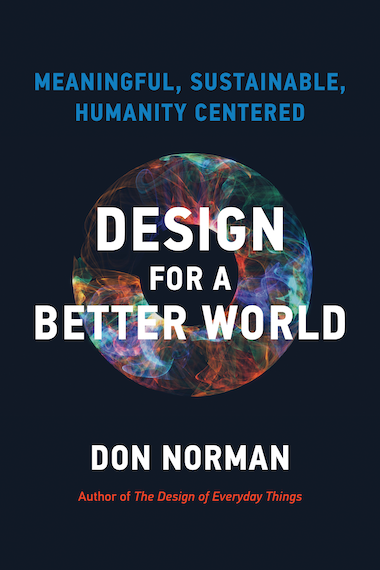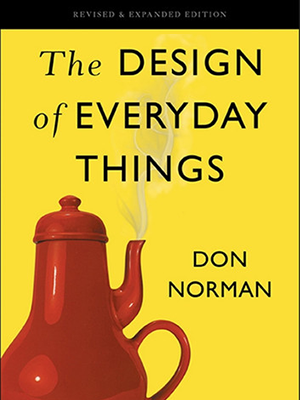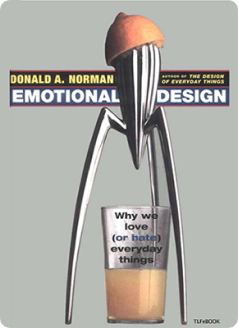Essays & Articles
To school or not to school
Originally published in Interactions. To school or not to school, is that the question? Should you go back to school? Elizabeth Dykstra-Erickson suggested the topic to me, stating:
I’d like to see what you think of the value of formal vs. on-the-job education. … Is there an ideal combination of formal education, experience, and intrepidness or is it all and entirely intuition and context that makes a good designer?
Is experience enough? To me, the answer depends a lot upon the individual, a lot upon the goals. Basically, school will not offer much to those who are already skilled craft workers. But the field ought to be more than a craft. In a letter published in the May+June 2005 Interactions (XI.3, page 14), I argued we were engineers, applying scientific knowledge, rules-of-thumb, and best practices to products and services. To move beyond crafts, to be able to apply the science and engineering knowledge appropriately, schooling can be critical.
In our field, we need numerous skills. The good designer or tester, is a craftsperson, using skills honed after years of practice. These skills come about only with experience, but experience alone is not enough – one must be good at reflecting on those experiences, distilling principles from specific cases. Here is where a mentor is so valuable. To those just starting out, school can get you going rapidly: one year of school accounts for many years of experience. But for those who already have the basic skills of the craft, school will offer little or nothing to their development as a craftsperson.
But to lead, to be a creator and definer, or to move up the management chain to direct the progress of the company, then schooling is very valuable. A good degree course offers a distillation of knowledge, abstracting general principles that apply to a wide range of issues, plus the knowledge required to move to whole new methods of interaction. Those who wish to manage should learn the tools of management: financial management, marketing, sales, human resources, and business practices.
What schools? What degree? The undergraduate degree is not a bad starting point, but only a starting point. If you lack the “appropriate” undergraduate degree, so what? That’s OK. The PhD is not necessary for most practitioners. The PhD is primarily for those who wish to teach or do research, either in the academic world or in an industrial research lab. It is of little use in the practical, product side of the business. This leaves the masters degree, which is the preferred level for the professional. So masters is what I recommend for most people.
But where is one to get an appropriate masters degree? There are numerous design schools, some HCI degrees, some applied psychology or ergonomics degrees. Some are in schools of art, design, and architecture. Some stand alone, such as the Institute of Design (Chicago, USA) or the Interaction Design Institute Ivrea (Italy). Most are part of universities or design institutes and academies. I think of design as ranging along a continuum, with field studies, ethnography, and user observations on the far left, styling and manufacturing on the far right, and iterative design, user studies, human-centered design principles, in the middle. No school covers all of these equally, so you must select from among those that cover the area in which you wish to work. Those inclined toward business might get an MBA, but this means moving from design. ID offers an MDM degree (Master of Design Methods) as one attempt to solve this conflict – other schools have similar programs. A list of programs is available at: www.hcibib.org/education/#PROGRAMS.
Whatever you do, remember that you must continually be learning. It is essential to keep up with rapidly evolving practices, with new technologies, procedures, business models, markets, and so on. So no matter what your schooling, make sure you are always engaged. Go to all the talks, seminars, and meetings you can. Attend national conferences. Subscribe to the journals and magazines and newsletters. Often these will disappoint or even bore you, but stick to it. You will be surprised how your sophistication grows over time, even though no single event seems responsible. When I go to a five-day conference, if I get one new insight, that makes it worthwhile. One insight after five days? Yup. Insights are rare. One or two a year, and that is a rich life.
To school or not to school is a question only you can answer. But to keep learning all of the time – that is essential for everyone.
Don Norman wears many hats, including co-founder of the Nielsen Norman group, Professor at Northwestern University, and author. His latest book is Emotional Design. He lives at http://www.jnd.org. Disclaimer for this article: Norman might be considered biased in favor of education: He is a trustee of the Institute of Design in Chicago, teaches design at Northwestern University (where he is a professor) and for the Stanford University design program (where he is a volunteer).Column written for Interactions. © CACM, 2006. This is the author’s version of the work. It is posted here by permission of ACM for your personal use. It may be redistributed for non-commercial use only, provided this paragraph is included. The definitive version will be published in Interactions,



